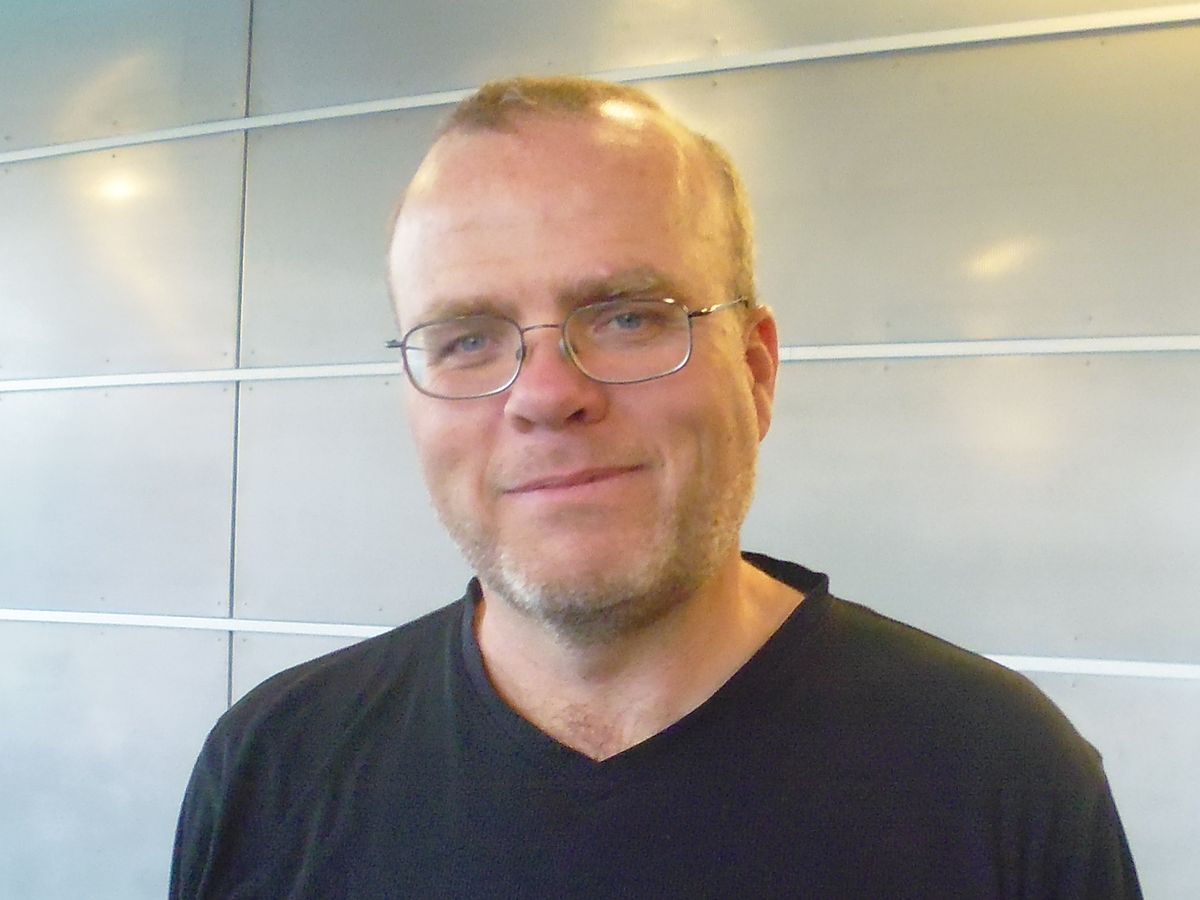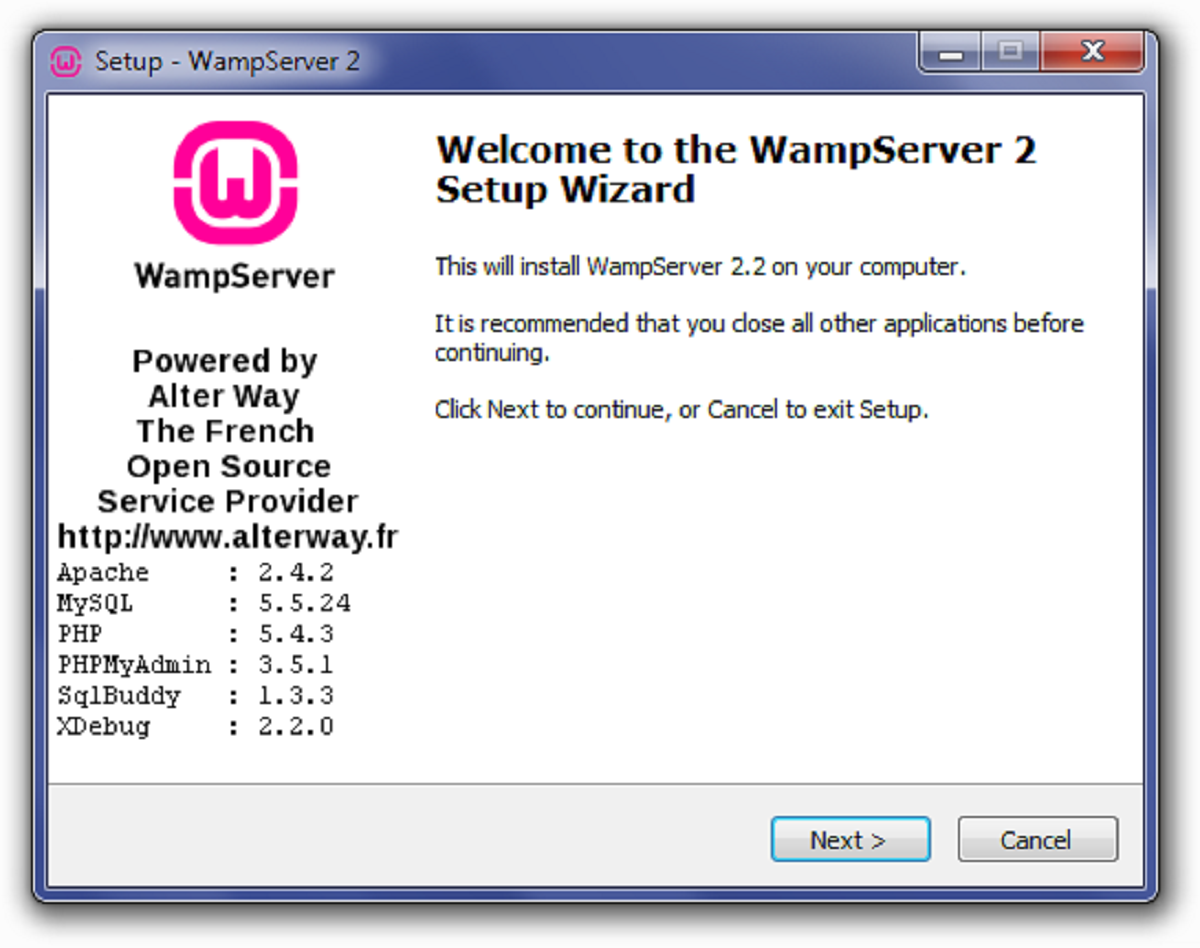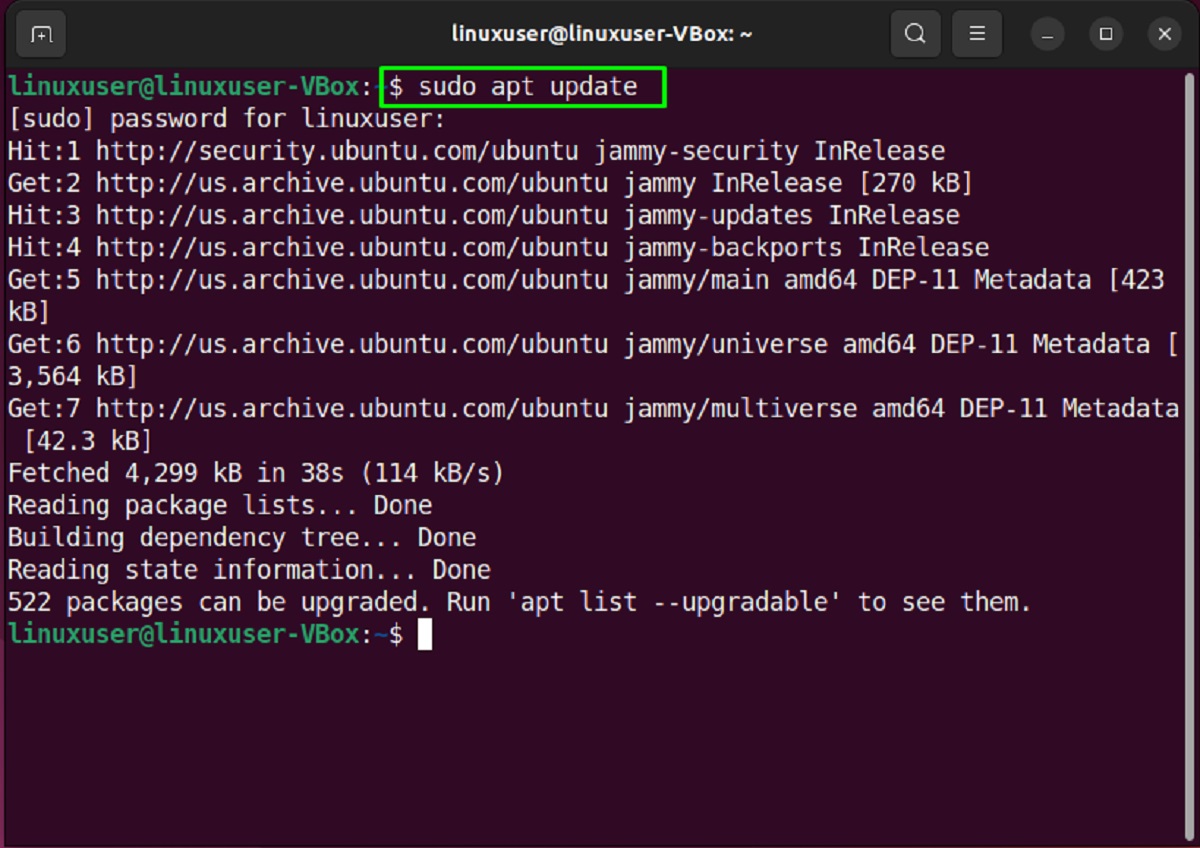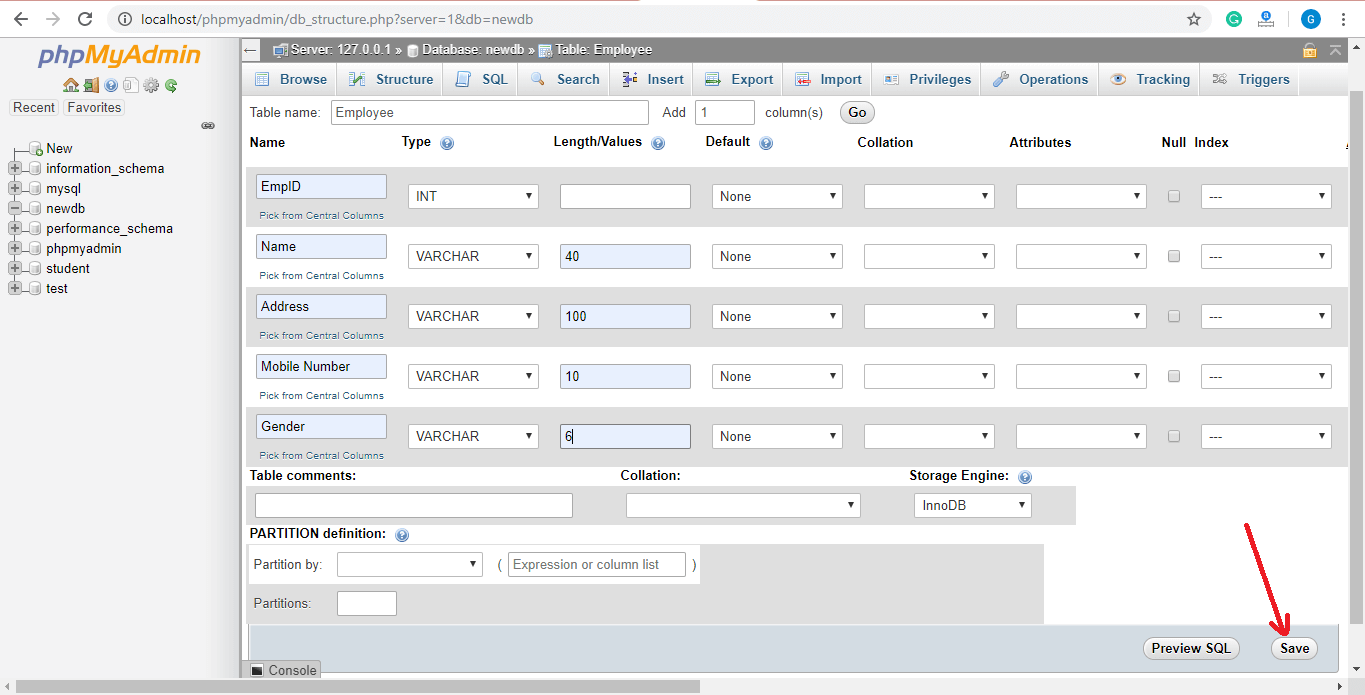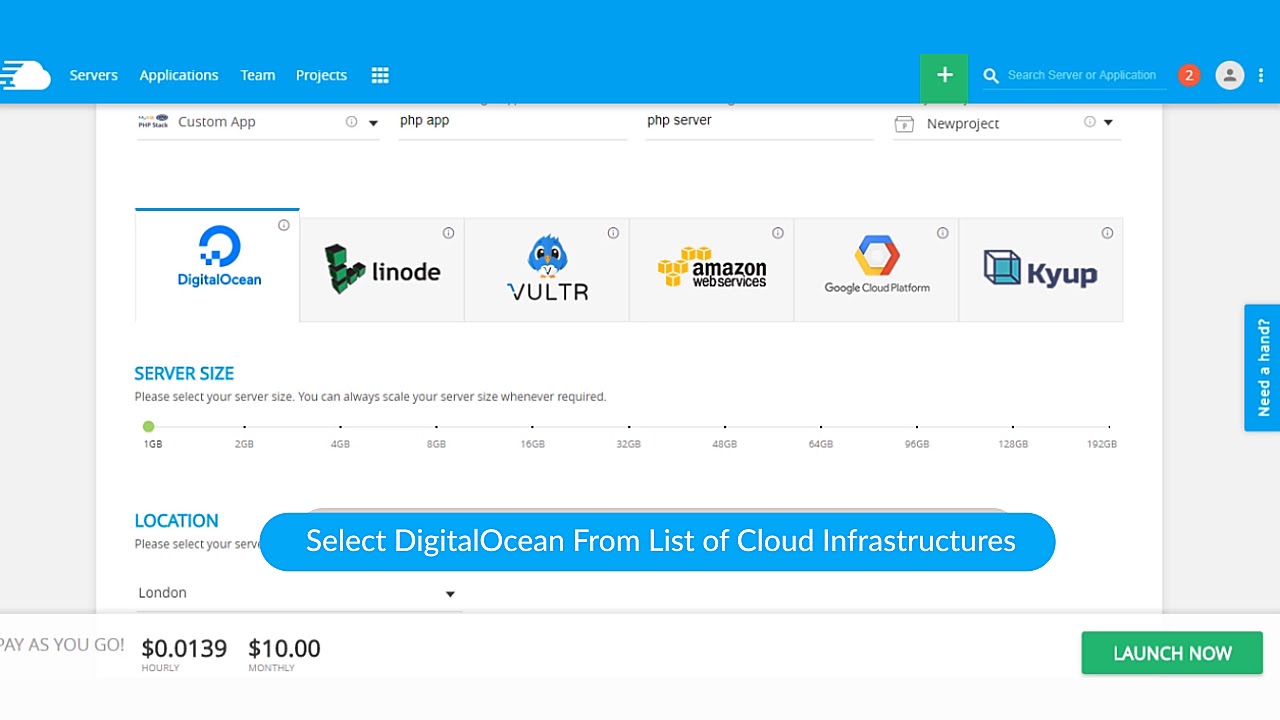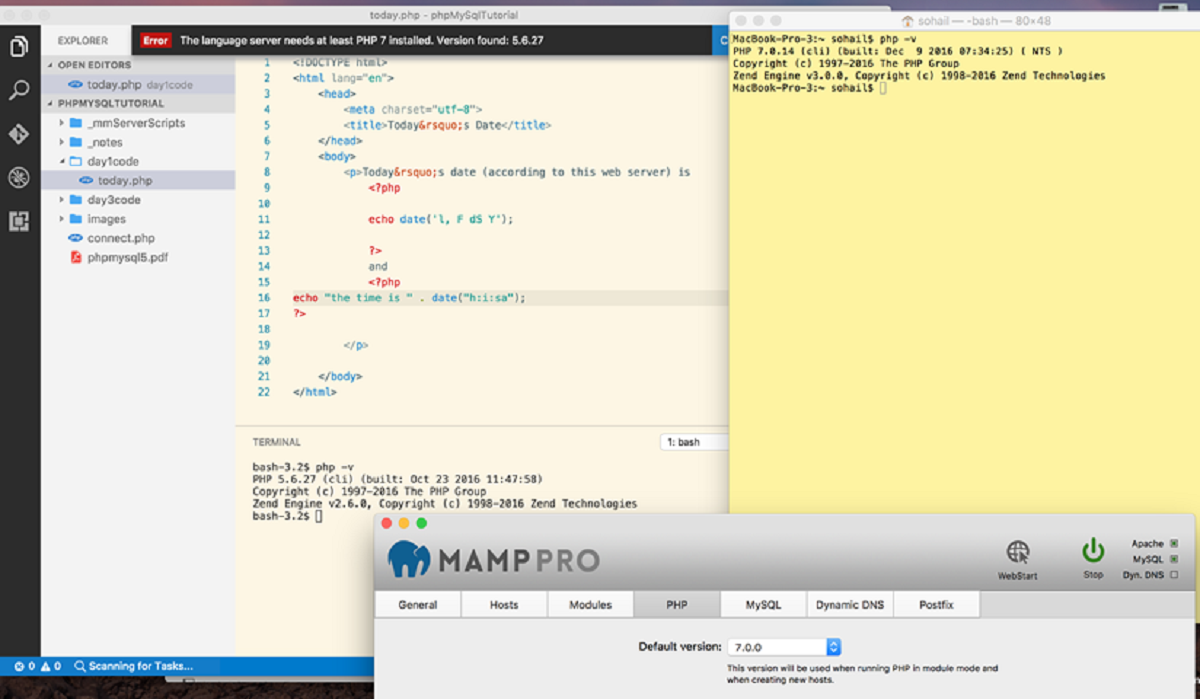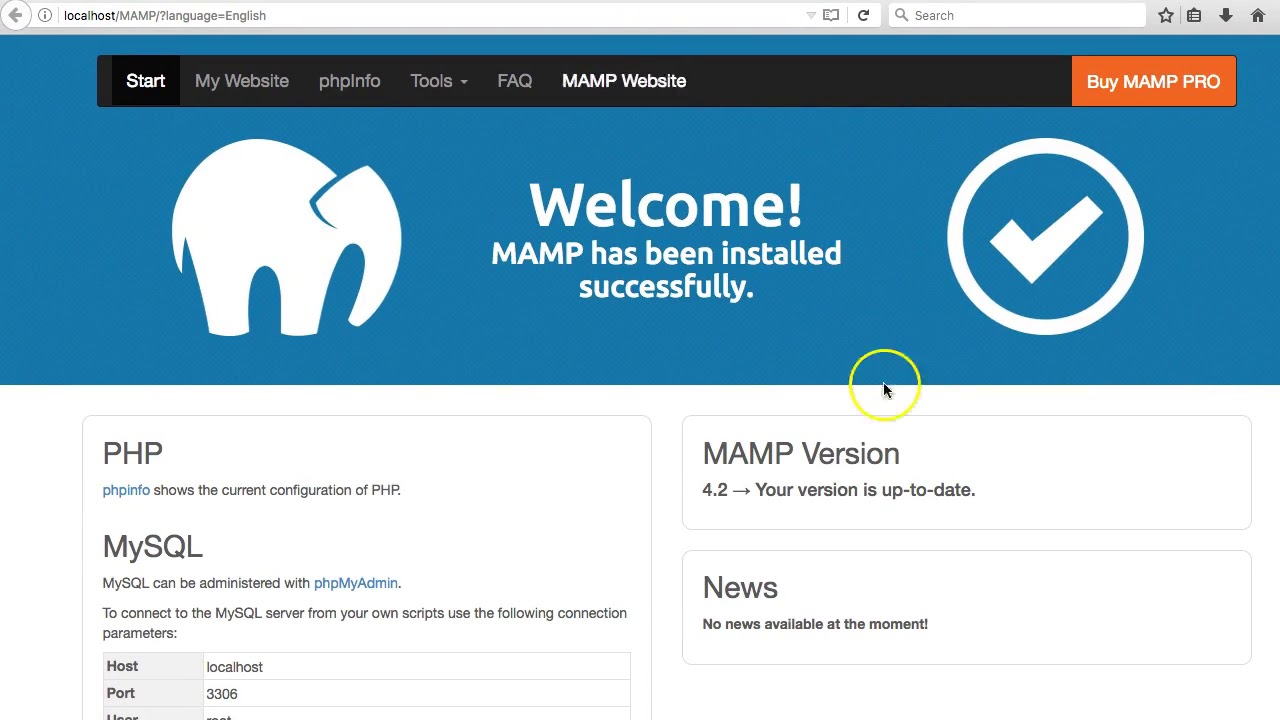Introduction
Welcome to the fascinating world of PHP! If you’ve ever wondered who created this popular scripting language, you’re in the right place. PHP, which stands for Hypertext Preprocessor, is widely used for web development and has played a crucial role in shaping the modern internet. In this article, we’ll dive into the history of PHP, exploring its origins, development, and the contributions of various individuals and communities.
PHP is an open-source, server-side scripting language that was initially designed for creating dynamic web pages. It has evolved over the years to power a vast array of web applications, from simple websites to complex content management systems and e-commerce platforms. Understanding its origins and the minds behind its creation gives us a deeper appreciation for the language and its capabilities.
Throughout this article, we’ll uncover the journey of PHP, from its humble beginnings to its current status as one of the most widely used programming languages on the web. We’ll explore the key figures who played pivotal roles in the development of PHP, the growth of the PHP community, and the future prospects of this versatile language.
A Brief History of PHP
PHP’s history can be traced back to the early days of the internet when personal websites were simple and static. As websites began to demand more dynamic and interactive features, scripting languages like PHP emerged to address these evolving needs.
The story of PHP begins with Rasmus Lerdorf, a Danish-Canadian programmer who created the initial version of PHP in 1994. Lerdorf initially developed PHP as a set of tools to manage his personal website, which consisted of several reusable CGI binaries written in C. He named this toolset “Personal Home Page Tools.”
As Lerdorf’s tools gained popularity among developers, he released the first public version of PHP, called PHP/FI (Personal Home Page/Forms Interpreter), in 1995. PHP/FI allowed developers to embed PHP code directly into HTML pages, enabling the creation of dynamic content. This release marked the birth of PHP as we know it today.
Over the next few years, PHP gained significant traction, thanks to its simplicity and versatility. With each iteration, the language evolved, introducing new features and improvements. PHP 3, released in 1998, brought about substantial changes, including a revamped engine and support for databases like MySQL. PHP 4, released in 2000, introduced even more enhancements, further solidifying PHP’s role as a leading web development language.
While Rasmus Lerdorf laid the foundation for PHP, the language’s development soon expanded beyond one individual. A dedicated team of developers began contributing to PHP’s growth, refining its functionality, and ensuring its compatibility with various web servers and platforms.
Another significant development in PHP’s history came with the involvement of Zend Technologies, a company founded by Andi Gutmans and Zeev Suraski. Zend Technologies played a vital role in advancing PHP, creating the Zend Engine, which became the heart of PHP 4. The Zend Engine improved PHP’s performance and paved the way for future versions and innovations.
The success of PHP can also be attributed to its thriving and passionate community. The PHP community encompasses countless developers, contributors, and enthusiasts, all working together to enhance the language, create new frameworks and libraries, and share their expertise.
Today, PHP continues to evolve, with PHP 8 being the latest major release. The language has come a long way since its inception, and its widespread adoption makes it a vital tool in the web development industry. Looking ahead, the future of PHP holds exciting possibilities, with ongoing development efforts focused on improving performance, introducing new features, and ensuring compatibility with emerging technologies.
Rasmus Lerdorf: The Origins of PHP
In the early 1990s, Rasmus Lerdorf found himself faced with the challenge of managing his personal website. He needed a way to track the number of visitors, handle form submissions, and make changes to his website easily. Unsatisfied with the existing tools and languages at the time, Lerdorf decided to build his own solution.
Lerdorf started by creating a set of CGI binaries written in the C programming language, which he named “Personal Home Page Tools.” These tools enabled him to add dynamic functionality to his website, such as displaying visitor counts and handling form data securely. Lerdorf released the tools to the public in 1995 under the name PHP/FI (Personal Home Page/Forms Interpreter).
The release of PHP/FI marked the birth of PHP. Initially, PHP/FI was a simple scripting language primarily focused on form handling and basic web functionality. It gained popularity quickly among developers who appreciated its simplicity and ease of use.
Rasmus Lerdorf’s pragmatic approach to web development greatly contributed to the success of PHP. He believed in keeping things simple and avoiding unnecessary complexity. His focus on practicality, efficiency, and usability attracted developers from all over the world, who began using PHP/FI for their own projects.
As PHP/FI gained traction, Lerdorf and the growing PHP community recognized the need for more advanced features. This led to the development and release of PHP 3, a significant milestone in the evolution of the language.
Despite his instrumental role in PHP’s early stages, Lerdorf eventually stepped back from active development and handed over the reins to a team of dedicated developers. This transition allowed PHP to mature further and facilitated the growth of a vibrant community of contributors.
Lerdorf’s contribution to the development of PHP goes beyond the initial creation of the language. His vision and passion for simplicity and practicality laid the foundation for PHP’s success. Without his ingenuity and determination, PHP may have never become the powerful and widely used language it is today.
Although Lerdorf’s direct involvement in PHP’s development has diminished over time, his impact on the language continues to be felt. The principles and ideas he instilled in PHP remain at the core of its philosophy, as the language evolves to meet the ever-changing demands of web development.
PHP/FI: The First Version of PHP
After releasing the initial set of tools known as PHP/FI (Personal Home Page/Forms Interpreter), Rasmus Lerdorf witnessed a surge in popularity and interest from developers seeking a flexible and efficient language for web development. PHP/FI aimed to simplify the process of building dynamic web pages by allowing developers to embed PHP code directly into HTML.
PHP/FI quickly gained a dedicated user base, prompting Lerdorf to continue refining and expanding the language. The first version of PHP/FI focused on handling form submissions, processing user data, and providing basic functionality for creating dynamic web content.
One of the key advantages of PHP/FI was its ability to work alongside existing web technologies, such as the Common Gateway Interface (CGI). This made integration seamless, allowing developers to enhance their websites with dynamic features without the need for complex setups or extensive modifications.
Moreover, PHP/FI incorporated a simple yet powerful scripting syntax that allowed developers to manipulate data, interact with databases, and perform various tasks, all within the context of a web page. This approach revolutionized web development at the time, as it enabled developers to create dynamic content without relying on separate server-side scripts.
Although PHP/FI was groundbreaking for its time, it had its limitations. It lacked robustness and scalability, especially for more complex web applications. Recognizing the need for improvement, Rasmus Lerdorf and the growing PHP community embarked on enhancing PHP, leading to the subsequent releases of PHP 3 and PHP 4.
Nevertheless, PHP/FI’s significance lies in its role as the foundation for PHP’s evolution. It demonstrated the potential of integrating scripting languages directly into web pages, igniting a paradigm shift in web development practices. The success of PHP/FI laid the groundwork for subsequent versions of PHP and set the stage for the language’s widespread adoption.
While PHP/FI may seem rudimentary by today’s standards, its impact cannot be understated. It laid the groundwork for the versatile and dynamic PHP we know today, and its success paved the way for the continuous development and evolution of the language.
As developers embraced PHP/FI and began exploring its capabilities, they fueled the demand for more advanced features, leading to the steady progression of PHP’s development and the emergence of subsequent versions that would shape PHP into a powerful scripting language.
The Birth of PHP 3 and PHP 4
Building upon the success of PHP/FI, the PHP development team, led by Rasmus Lerdorf, recognized the need to enhance the language to meet the growing demands of web development. This led to the release of PHP 3 in 1998, which introduced significant improvements and marked a crucial milestone in PHP’s evolution.
PHP 3 brought several notable advancements to the language. It featured a redesigned engine, offering improved performance and better compatibility with various web servers. Additionally, PHP 3 introduced support for interacting with databases like MySQL, allowing developers to build dynamic websites that could store and retrieve data efficiently.
The release of PHP 3 propelled PHP’s popularity to new heights. Its enhanced capabilities, ease of use, and growing community of developers contributed to its widespread adoption and cemented PHP as a leading server-side scripting language.
Building upon the success of PHP 3, the PHP development team continued to iterate and improve the language. In 2000, the team released PHP 4, which brought even more significant advancements and solidified PHP’s position as a powerful web development language.
PHP 4 introduced several key features that further expanded the language’s capabilities. It introduced a more efficient and powerful engine, known as the Zend Engine, developed by Andi Gutmans and Zeev Suraski of Zend Technologies. The Zend Engine significantly improved PHP’s performance, making it capable of handling larger and more complex web applications.
PHP 4 also introduced object-oriented programming (OOP) support, allowing developers to write more modular and structured code. This opened up new possibilities for developers, enabling them to build robust and maintainable web applications.
Furthermore, PHP 4 introduced support for a broader range of databases, expanded the standard library of functions, and included numerous bug fixes and performance optimizations.
The release of PHP 4 marked an essential turning point in PHP’s history. With its increased performance, enhanced features, and improved usability, PHP gained even more popularity among developers, becoming the go-to language for web development.
Overall, PHP 3 and PHP 4 were crucial milestones in PHP’s evolution. They brought significant advances to the language, improving performance, scalability, and functionality. These releases laid the foundation for PHP’s widespread use and set the stage for further innovation and growth in the PHP community.
The PHP Development Team: Growing the Language
While Rasmus Lerdorf played a central role in PHP’s early development, PHP’s continued growth and success would not have been possible without the dedicated team of developers who joined the PHP project. As PHP gained momentum and attracted a growing user base, the PHP development team expanded, pooling their expertise, ideas, and contributions to shape the language into what it is today.
The PHP development team, consisting of passionate developers from around the world, was instrumental in improving PHP’s functionality, stability, and performance. They worked diligently to address bugs, add new features, and optimize the language for various use cases.
Collaboration within the PHP development team was facilitated through various channels, including mailing lists, forums, and later on, online code repositories. These platforms allowed the team members to communicate, exchange ideas, review code, and collaborate on new features and enhancements.
As the development team grew, the PHP project transitioned from being the work of a single individual to a collective effort. This shift brought diverse perspectives and skills to the table, enabling PHP to evolve and adapt to the changing needs of web development.
One of the notable milestones in the PHP development team’s journey was the involvement of Andi Gutmans and Zeev Suraski, who co-founded Zend Technologies in 1999. Gutmans and Suraski played a pivotal role in the development of PHP 4, creating the Zend Engine and making significant contributions to PHP’s core.
The Zend Engine, which became the heart of PHP 4, greatly improved the language’s performance and provided a solid foundation for future iterations of PHP. Gutmans and Suraski’s involvement further accelerated PHP’s growth, ensuring its compatibility with enterprise-level applications and cementing its position as a reliable and efficient scripting language.
Moreover, the growth of the PHP development team led to more robust support for various web servers and platforms, expanding PHP’s reach and making it widely accessible to developers worldwide. Alongside maintaining the core PHP project, team members contributed to the development of additional tools, extensions, and libraries that complemented PHP’s functionality and enabled developers to tackle various web development challenges.
Today, the PHP development team remains active, tirelessly working on improving the language, releasing new versions, and ensuring the stability and security of PHP. Their commitment and dedication show in the continuous evolution of PHP, as the language strives to meet the ever-changing demands of the web development landscape.
The PHP development team, along with the vibrant community of contributors and users, is the driving force behind PHP’s growth and success. Their collective efforts have transformed PHP from a simple scripting language into a powerful, versatile, and widely adopted tool for web development.
The Role of Zend Technologies
In the history of PHP, one of the significant milestones was the involvement of Zend Technologies. Founded by Andi Gutmans and Zeev Suraski in 1999, Zend Technologies played a pivotal role in the advancement and growth of PHP.
Zend Technologies is best known for developing the Zend Engine, a powerful and efficient scripting engine that became the core of PHP 4 and later versions. The Zend Engine significantly improved PHP’s performance, making it a more capable language for handling complex web applications and high-traffic websites.
With the Zend Engine, Zend Technologies introduced numerous optimizations and enhancements to PHP that revolutionized its speed and reliability. These advancements ensured that PHP could compete with other scripting languages and support enterprise-level applications.
Besides the Zend Engine, Zend Technologies developed the Zend Framework, a robust set of open-source libraries and tools for PHP web development. The Zend Framework provided developers with a standardized structure and a comprehensive collection of reusable components for building scalable and secure web applications.
Furthermore, Zend Technologies played a vital role in promoting PHP and advocating for its adoption in the business world. They partnered with major technology companies, contributed to the PHP development community, and helped establish PHP as a trusted and reliable choice for web development.
Zend Technologies also provided commercial products and services built upon PHP, such as Zend Server and Zend Studio, which offered tools for managing and debugging PHP applications. These professional-grade offerings helped businesses leverage the power of PHP for their critical web applications.
Due to their contributions to PHP’s development and their commitment to fostering its success, Zend Technologies became widely recognized as a key influencer and driver in the PHP ecosystem.
Over the years, Zend Technologies continued to innovate and evolve. They actively participated in PHP’s development, contributed code to the PHP core, and supported the PHP community through sponsorships, events, and educational initiatives.
As the PHP language has progressed, Zend Technologies has transitioned its focus to meet the demands of modern PHP development. They have expanded their offerings to include tools, frameworks, and services that enable developers to build high-performance, secure, and scalable applications in PHP.
Today, Zend Technologies remains an influential organization in the PHP community, accelerating the growth and adoption of PHP through their expertise, code contributions, and collaboration with developers and businesses.
The contributions of Zend Technologies have been instrumental in making PHP a robust and widely adopted programming language, providing developers with the tools and support necessary to build complex web applications with confidence.
The PHP Community: Contributions and Innovations
One of the key factors behind the success and growth of PHP is its vibrant and passionate community of developers. The PHP community, consisting of individuals, groups, and organizations, has made significant contributions and innovations that have shaped the language into what it is today.
The PHP community is known for its collaborative nature, sharing knowledge, code, and best practices. Online forums, mailing lists, and dedicated websites have provided platforms for developers to connect, seek help, and share their expertise with one another.
One of the remarkable aspects of the PHP community is its role in creating a vast ecosystem of frameworks, libraries, and tools that extend PHP’s functionality and make development more efficient. Projects like Laravel, Symfony, and CodeIgniter have revolutionized PHP development by providing robust and feature-rich frameworks that simplify the process of building complex web applications.
Open-source contributions have played a significant role in the PHP community’s growth. Countless developers have committed their time and expertise to improving the PHP language itself, fixing bugs, optimizing performance, and introducing new features. The PHP source code is open to the public, allowing anyone to contribute to its development and help shape its future.
The PHP community has been at the forefront of fostering collaboration and knowledge sharing through various conferences and events. PHP-centric conferences, such as PHP Conference and PHPBenelux, provide platforms for developers to connect, attend informative talks, and participate in coding challenges, advancing the PHP community and its collective understanding of the language.
The community’s commitment to education and mentorship has been instrumental in nurturing talent and encouraging newcomers to PHP. Online tutorials, blogs, and video learning platforms have proliferated, ensuring that learning resources are readily available to developers of all skill levels.
Moreover, the PHP community has embraced modern development practices and technologies, incorporating innovations such as cloud computing, microservices, and containerization into the PHP ecosystem. This adaptability has empowered developers to build scalable, secure, and cutting-edge applications using PHP.
The PHP community’s dedication to sharing knowledge and celebrating achievements has also fostered healthy competition and innovation. Community-driven events, such as PHP-based hackathons and coding challenges, encourage developers to explore new ideas and push the boundaries of PHP’s capabilities.
Through their collective efforts, the PHP community has played a crucial role in validating and advancing PHP as a robust and versatile language for web development. The active contributions, innovations, and collaborations within the community have shaped PHP into a dynamic and ever-evolving ecosystem.
As PHP continues to grow, the PHP community will undoubtedly play a vital role in its ongoing development and success. Their continued dedication to knowledge sharing, open-source contributions, and fostering collaboration ensures that PHP remains a powerful language for building web applications and propels its evolution into the future.
PHP Today: The Latest Version and Future Developments
PHP has evolved significantly since its early days, thanks to the continuous efforts of the PHP development team, the PHP community, and the wider web development industry. The latest major release, PHP 8, brings a host of new features, optimizations, and performance improvements to the language.
PHP 8 introduces a Just-In-Time (JIT) compilation engine, which dynamically compiles PHP bytecode into machine code, resulting in significant performance boosts for certain types of workloads. This optimization enhances PHP’s speed and allows it to compete with other languages in terms of execution time.
Additionally, PHP 8 introduces numerous language enhancements, including union types, named arguments, attributes, and match expressions. These new features improve code readability, reduce complexity, and provide developers with more powerful tools to express their ideas.
The PHP development team continues to work on improving PHP’s core, addressing bugs, and enhancing performance. They actively engage with the PHP community, listen to feedback, and collaborate on the development of future versions.
Looking ahead, future developments in PHP are poised to address emerging trends and technologies in web development. The PHP community is exploring ways to integrate PHP with technologies like machine learning, artificial intelligence, and cloud computing.
Efforts are being made to improve PHP’s support for modern web frameworks and libraries, making it easier for developers to build highly scalable and efficient applications. The community is actively exploring how PHP can leverage technologies such as serverless computing and microservices architectures to meet the evolving needs of the industry.
Furthermore, initiatives are underway to enhance PHP’s security features and promote best practices for secure coding. This includes raising awareness about common vulnerabilities and providing guidance on secure coding practices to prevent potential exploits.
As PHP continues to evolve, it remains a popular language for web development, powering millions of websites and applications across the globe. Its compatibility, ease of use, and flexibility have solidified its position as a trusted choice for developers of all skill levels.
The PHP community, with its dedication and passion, continues to drive the language forward. Through collaboration, open-source contributions, and ongoing innovation, PHP is expected to remain a dominant force in web development, addressing the demands of an ever-changing digital landscape.
With active development, a strong community, and a focus on adoption of modern practices, PHP is well-positioned to meet future challenges and continue to thrive as a versatile and powerful language for web development.
Conclusion
The journey of PHP, from its humble beginnings to its current state, is a testament to the power of collaboration, innovation, and community-driven development. It has revolutionized web development, offering a versatile and efficient language capable of creating dynamic and interactive websites.
Throughout its history, PHP has undergone significant transformations, driven by the contributions of key figures like Rasmus Lerdorf, the dedicated PHP development team, and organizations like Zend Technologies. Their passion and expertise have propelled PHP’s evolution, resulting in improved performance, enhanced features, and a thriving ecosystem of frameworks, libraries, and tools.
The PHP community, with its collective knowledge and camaraderie, has played a critical role in PHP’s success. Through open-source contributions, mentorship, and knowledge sharing, the PHP community has fostered an environment of growth and collaboration, ensuring that PHP remains at the forefront of web development.
PHP’s latest major release, PHP 8, demonstrates the language’s continuous adaptation to meet the demands of modern web development. With its improved performance, new features, and ongoing efforts to address emerging technologies, PHP remains a powerful and relevant language for building web applications.
Looking to the future, PHP shows no signs of slowing down. Ongoing developments aim to keep PHP at the forefront of web development, embracing trends like machine learning, cloud computing, and microservices. The PHP community will continue to innovate, sharing knowledge and pushing the boundaries of what PHP can achieve.
As PHP continues to evolve, it remains a language of choice for developers around the world. Its extensive documentation, widespread adoption, and strong community support make it an attractive option for both beginners and seasoned professionals.
In conclusion, PHP’s journey is a testament to the power of collaboration and community-driven development. With a vibrant community, continuous innovation, and a commitment to adapt to the changing needs of web development, PHP remains a force to be reckoned with, enabling developers to build dynamic, scalable, and modern web applications.







